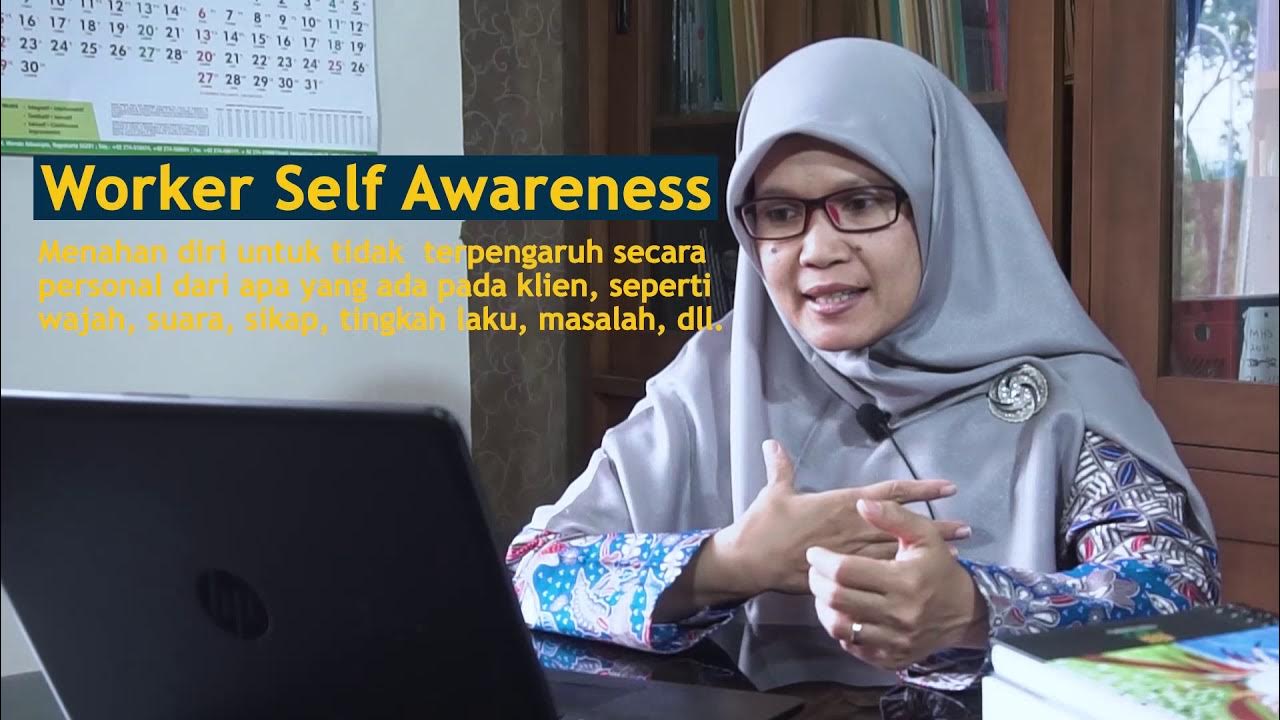NASW Code of Ethics BREAKDOWN | 1.07 Privacy and Confidentiality | PART 5
Summary
TLDRThis video script offers a comprehensive breakdown of the social work ethics code 1.07, focusing on privacy and confidentiality. It emphasizes the importance of respecting clients' privacy, obtaining consent for information disclosure, and safeguarding confidential information even in legal proceedings. The script also addresses the handling of group counseling, electronic communications, and the responsibilities of social workers in protecting client information, including in the event of a breach or after the social worker's termination of practice.
Takeaways
- 🔒 Social workers must respect clients' privacy and should not solicit private information unless there are compelling professional reasons.
- 🤝 Once private information is shared, standards of confidentiality apply, and social workers must handle this information with care.
- 🚫 Social workers may disclose confidential information only with valid consent from the client or a legally authorized person.
- 👮♂️ Exceptions to confidentiality include situations where disclosure is necessary to prevent serious, foreseeable, and imminent harm to the client or others.
- 📝 Social workers should inform clients about the nature of confidentiality and its limitations at the start of their professional relationship.
- 🗣️ If social workers plan to disclose confidential information, they should inform clients about the disclosure and potential consequences when possible.
- 👪 When providing services to groups or families, social workers should seek agreements on confidentiality among all parties involved.
- 🏥 Social workers should not disclose confidential information to third-party payers, such as insurance companies, without client authorization.
- 📱 Social workers must protect the confidentiality of electronic communications and use safeguards like encryption and passwords.
- 🛡️ In legal proceedings, social workers should protect client confidentiality to the extent permitted by law and advocate for the least amount of information disclosure.
- 🗑️ Social workers should have policies for notifying clients of any breach of confidential information and take precautions to protect client confidentiality in case of practice termination, incapacitation, or death.
Q & A
What is the primary principle regarding privacy and confidentiality in social work as per the transcript?
-The primary principle is that social workers should respect clients' right to privacy and not solicit private information from or about clients except for compelling professional reasons. Once private information is shared, standards of confidentiality apply.
Why should social workers avoid soliciting private information beyond compelling professional reasons?
-Social workers should avoid soliciting unnecessary private information to protect clients' privacy, maintain trust, and focus on the client's needs and goals without being intrusive or causing discomfort.
What does it mean to say 'confidentiality applies' in the context of social work?
-It means that once private information is shared with the social worker, they are ethically and professionally bound to keep that information confidential, except in cases of compelling professional reasons or legal requirements.
Under what circumstances may social workers disclose confidential information?
-Social workers may disclose confidential information when there is a valid consent from the client or a legally authorized person, or when necessary to prevent serious, foreseeable, and imminent harm to the client or others.
Why is it important for social workers to obtain legal consent before disclosing information to third parties?
-Obtaining legal consent ensures that the disclosure of information is lawful and that the client has given explicit permission for the social worker to share their information with a third party, protecting the client's rights and privacy.
What should social workers do if they plan to disclose confidential information?
-If social workers plan to disclose confidential information, they should, when feasible and to the extent possible, inform clients about the disclosure and the potential consequences prior to disclosing the information.
What is the significance of discussing confidentiality and its limitations with clients at the beginning of the social worker-client relationship?
-Discussing confidentiality and its limitations helps set clear expectations for the client regarding what information can be kept confidential and under what circumstances information may need to be disclosed, ensuring transparency and trust.
How should social workers handle the confidentiality of information shared in group or family counseling sessions?
-Social workers should seek agreement among all parties involved regarding each individual's right to confidentiality and obligation to preserve the confidentiality of information shared by others. They should also inform participants that they cannot guarantee all participants will honor such agreements.
What precautions should social workers take when using electronic communication to protect client confidentiality?
-Social workers should use safeguards such as encryption, firewalls, and passwords when using electronic communication methods like email, online posts, chat sessions, mobile communications, and text messages to ensure confidentiality and security.
What should social workers do in the event of a breach of confidential information?
-Social workers should develop and disclose policies and procedures for notifying clients of any breach of confidential information in a timely manner, consistent with applicable laws and professional standards.
How should social workers handle the transfer or disposal of client records?
-Social workers should transfer or dispose of client records in a manner that protects client confidentiality and complies with applicable laws governing records and social work licensure, ensuring secure and responsible management of client information.
Outlines

このセクションは有料ユーザー限定です。 アクセスするには、アップグレードをお願いします。
今すぐアップグレードMindmap

このセクションは有料ユーザー限定です。 アクセスするには、アップグレードをお願いします。
今すぐアップグレードKeywords

このセクションは有料ユーザー限定です。 アクセスするには、アップグレードをお願いします。
今すぐアップグレードHighlights

このセクションは有料ユーザー限定です。 アクセスするには、アップグレードをお願いします。
今すぐアップグレードTranscripts

このセクションは有料ユーザー限定です。 アクセスするには、アップグレードをお願いします。
今すぐアップグレード関連動画をさらに表示

Nilai profesi dalam Praktek Pekerja sosial

OCSWSSW Student Presentation

5 Tips From Ricardo Vargas To Master A Work Breakdown Structure

16 Books That Will Make You Smarter Than 99% of People

Funny INTJ 16 Personalities Sketch Highlights (INTJ Only)

Kode Etik Jurnalistik | Komunikasi Unitri | Konsentrasi Jurnalistik
5.0 / 5 (0 votes)
